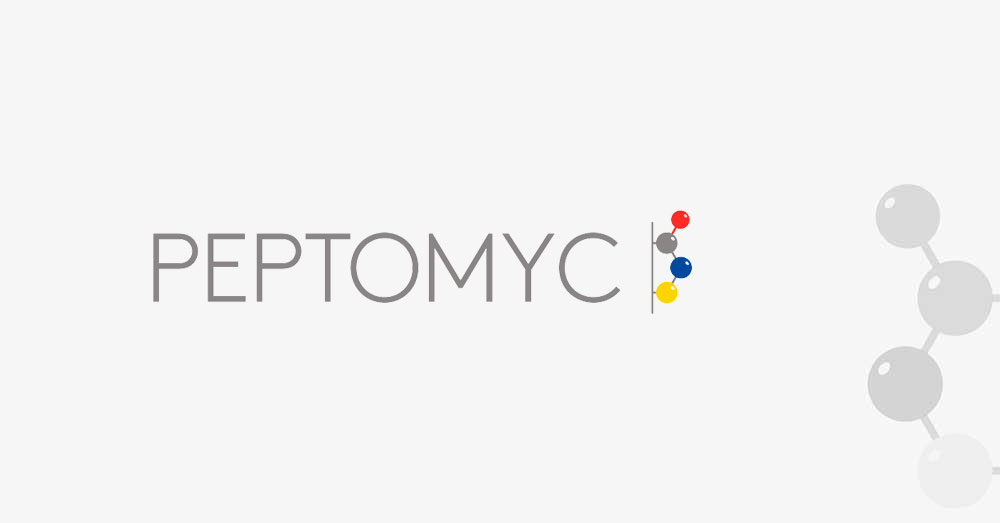Barcelona, Thursday 6thMay 2021
Peptomyc, a Spanish clinical stage biotech company spin-off of the Vall d’Hebron Institute of Oncology (VHIO) and the Catalan Institute of Research and Advanced Studies (ICREA) in Barcelona, reported that on Tuesday 4thMay the first patient has been dosed with OMO-103, its anti-MYC lead compound, in a Phase I/II study, under the supervision of Dr. Elena Garralda at the Hospital Universitari Vall d’Hebron in Barcelona.
Patients with advanced solid tumors are currently being enrolled in 3 Spanish sites for a Phase I clinical study: the Hospital Universitari Vall d’Hebron in Barcelona, and the Hospital Universitario HM Sanchinarro and Hospital Fundación Jimenez Diaz in Madrid.
In the Phase II part of the study, which will expand to additional hospital sites in Europe, at least 3 specific tumor entities will be included in the trial: TNBC, KRAS-mutated NSCLC and RAS-mutated CRC. The entire Phase I/II study will enroll up to 74 patients.
The objective of this first in human Phase I/II study is to evaluate the safety of OMO-103, as well as its preliminary anti-tumor efficacy.
Peptomyc’s CMO Manuela Niewel said, “We are thrilled to see our first patient already treated with OMO-103 and do hope that the safety and efficacy we saw preclinically will now translate into real benefit for our patients.”
Peptomyc’s CEO and co-founder Laura Soucek, whose research work has been seminal for the development of OMO-103, commented: “Most cancer researchers dream of one day seeing their hard work at the bench finally impacting the clinical practice. This is our chance to do so and I have high expectations and hope for this study.”
Finally, Dr. Elena Garralda, Director of the Research Unit for Molecular Therapy of Cancer (UITM) “la Caixa”and Principal Investigator of VHIO’s Early Clinical Drug Development Group, said: “Myc is a most wanted target in cancer therapy, but has always been considered impossible to attack with targeted therapies, so this trial is particularly interesting. If we confirm that the treatment is effective, it could be applied to many types of cancer”.
Download PDF:
20210506_PressRelease1patient_Fv4
 This project has received funding from the European Union’s Horizon 2020 research and innovation programme under grant agreement No 872212
This project has received funding from the European Union’s Horizon 2020 research and innovation programme under grant agreement No 872212
[/fusion_text][/fusion_builder_column][/fusion_builder_row][/fusion_builder_container]



